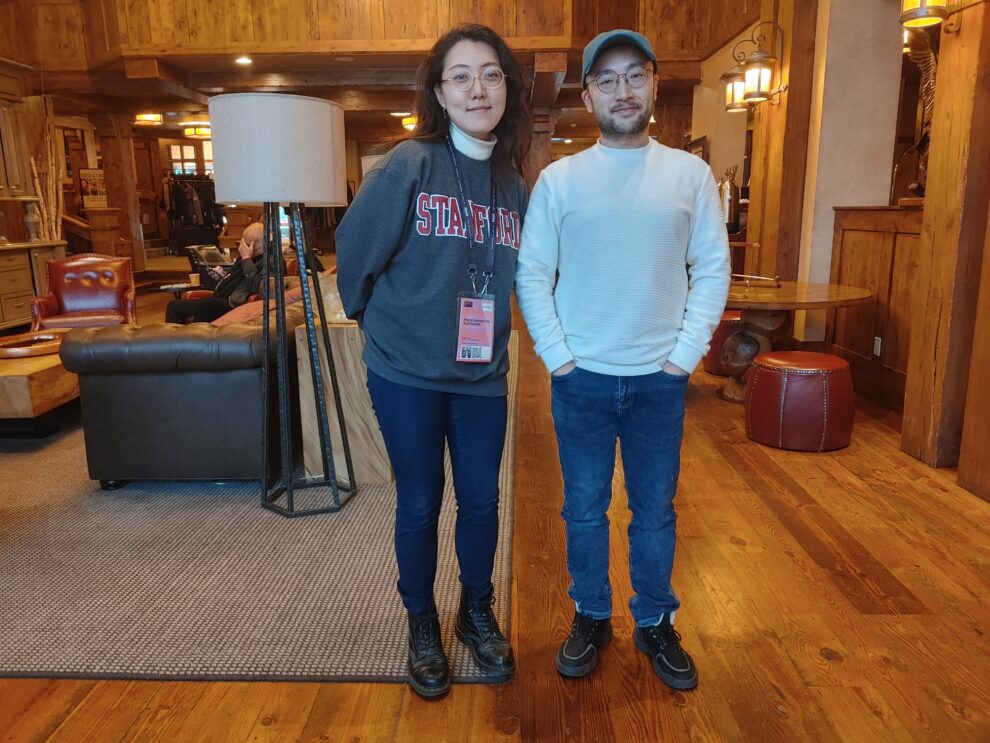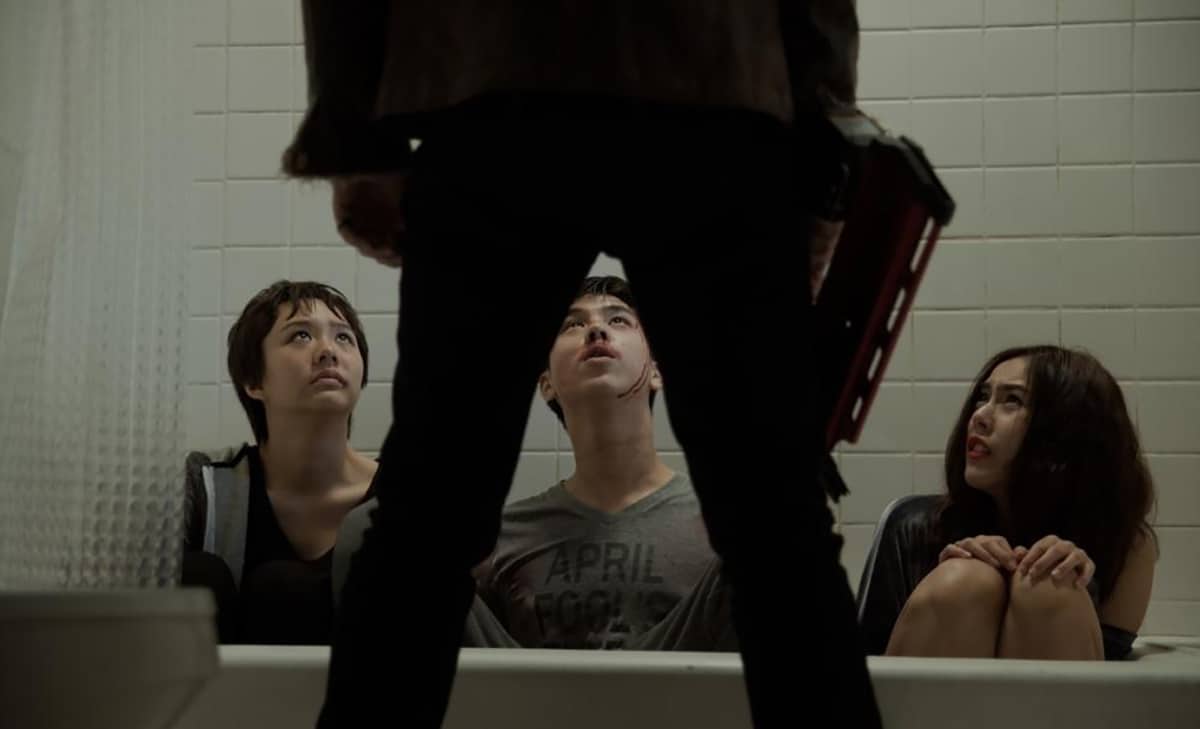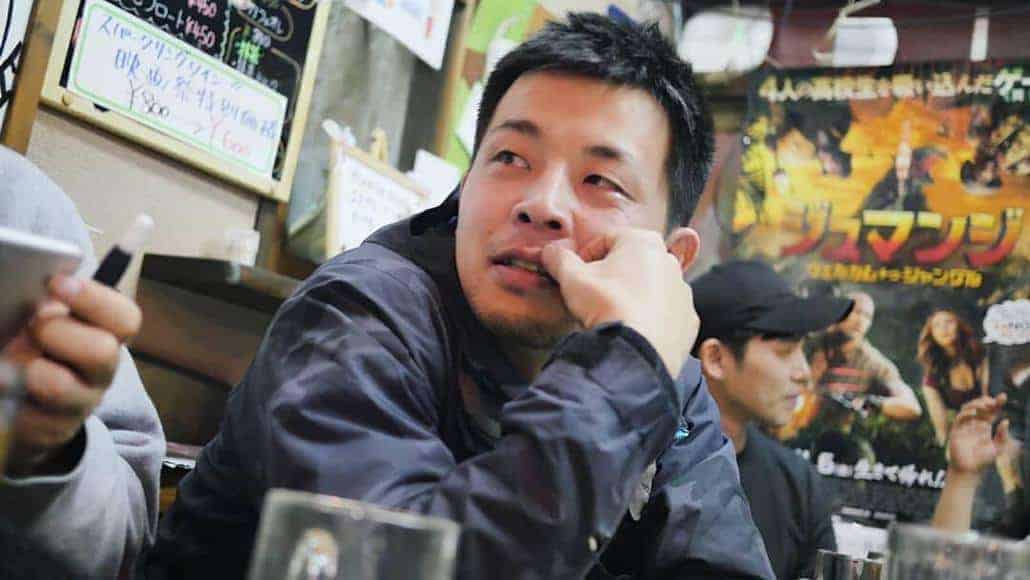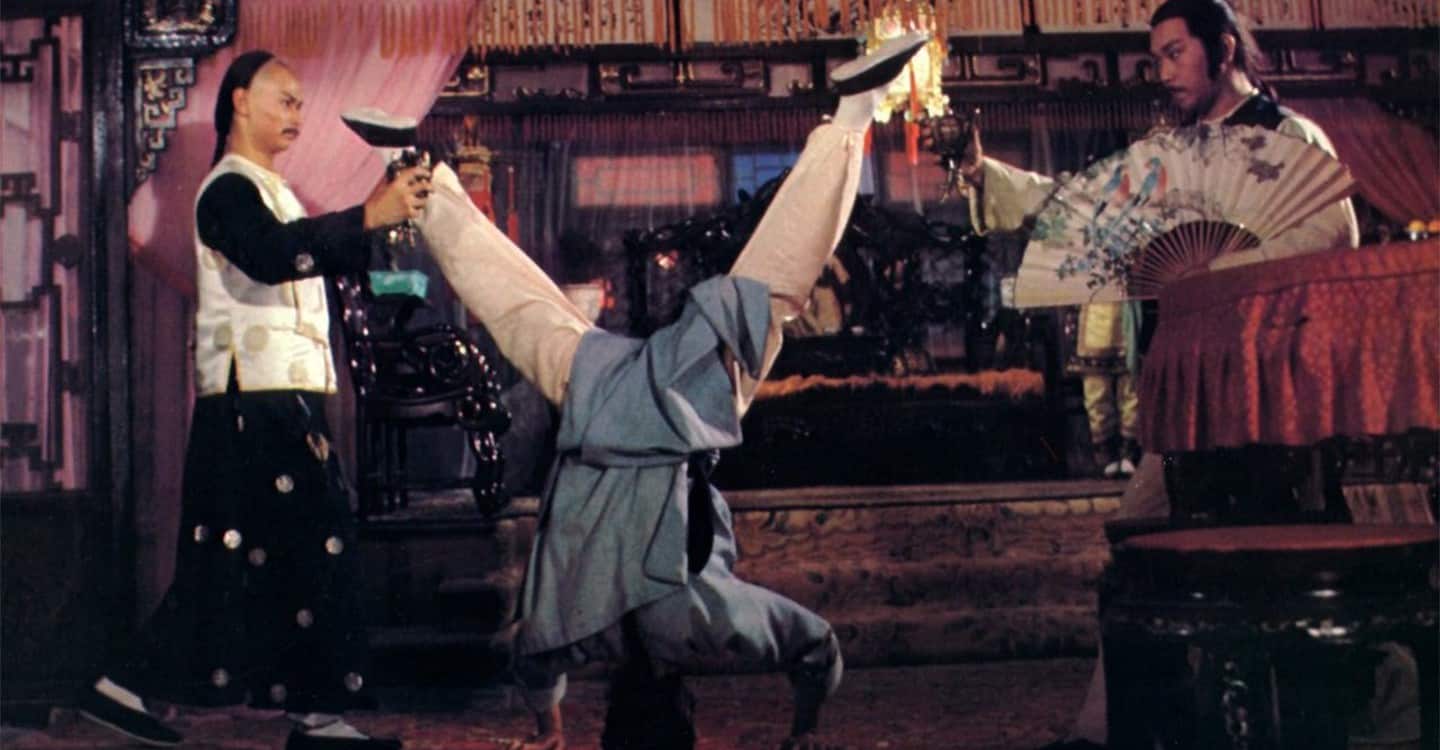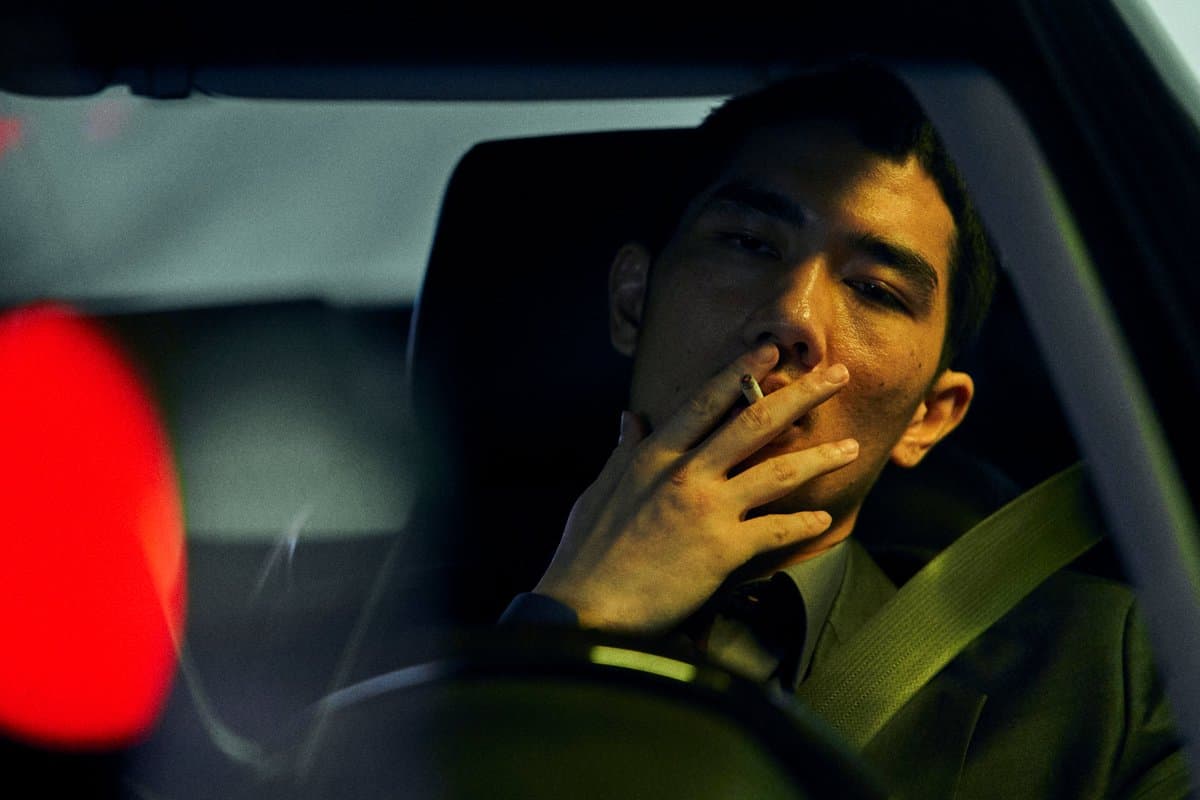Jianjie (JJ) Lin's debut feature “Brief History of a Family” stood out in the programming at Sundance this year. The Chinese-Danish co-production – one of this year's nominees in the World Cinema – Dramatic competition – surrenders to ambiguity. Unlike the many straightforward narratives at this year's edition, the film remains mum on who's on the side of good and evil – and perhaps, that underlines the thrill of the movie.
“A Brief History of a Family” premiered at Sundance 2024, and will play in the Panorama of the 74th edition of Berlinale. World sales is managed by Films Boutique and the screening schedule is available here.
Here, the spoiled Tu Wei (Muran Lin) lives a happy, upper middle class life with his two parents (Ke-Yu Guo and Feng Zu). Things begin to change, however, when he takes a high school classmate, Yan Shuo (Xilun Sun) under his wing after an accident at a basketball court. While Yan Shuo seems pitiful at first – his mother is dead, his father is an alcoholic, and he drowns his rice in soy sauce for flavor – something feels off to Tu Wei. While Tu Wei dreams about staying in China, fencing and playing video games, Yan Shuo's more academic inclinations and ambitions to study abroad appeal a little too much to Tu Wei's parents. Tu Wei's mother regularly invites Yan Shuo for dinner; his father teaches him calligraphy; and eventually, after a freak accident, they suggest adopting Yan Shuo entirely. As Yan Shuo begins to look increasingly like a mainstay in the family, Tu Wei begins to perceive him as a menace. What had started as a convenient scapegoat has escalated out of control – but who actually is the victim is hard to say.
We got the chance to speak with director JJ Lin in the snow capped mountains of Park City. Over the course of the hour, we spoke about his experience as an only child, blurring genre boundaries, and what it means to make a film “open to interpretation.”
This interview has been edited and redacted for clarity.
What inspired “Brief History of a Family”?
Jianjie (JJ) Lin: It's always a little hard to go back to the inspiration because it's been a very long process. But if I were to say one thing, I think in the very beginning, I thought about the phrase, “Home Sweet Home.” Underneath the peaceful and happy facade, [I wondered:] Could there be anything more?
So how close to home was this film for you?
It's impossible to say it has nothing to do with me. But it's also not true that it's semi-autobiographical.
You are an only child, right?
Yeah, but I'm just one of the many, many families [affected by the] One Child Policy. The only child experience I draw from my experience and my friends', my classmates'. It's about how much pressure you feel, and how much hope and resources you receive from your parents [as an only child]. In a way, it's difficult to just be yourself without thinking because of all these expectations.
Did you want a sibling?
Actually, yes. When I was younger, I wanted a brother. Maybe an older brother even, because they can fight for me when I got bullied at school. (laughs)
But here you are, at Sundance!
I feel very humbled by coming here. I've met people on the street who have come up to me to tell me they really liked the film; it's been so overwhelming. It's been a lot of good vibes here.
At first, I wasn't sure [making movies] was the right path. When I decided to go to film school at NYU Tisch, it was a leap of faith. I went to Tisch through photography; I had never made a short film before. I learned a lot in my first year, and made a couple of shorts as exercises. In the second year, I made another short film. My classmates and my professors liked it, and I started to find my own voice in the program. I slowly started to think, “Maybe I'll be okay.”
How did you build up from these shorts and into your first feature?
I would love it if it was a build-up, but my short films were not successful. With these first two short films, it was more about honing your skills, finding what you like and don't like to do. Trial and error.
And the funding?
I was supported by a few labs. We won the Best Pitch Award at the project market at the Shanghai Film Festival. We were then selected for the Torino Film Lab in Italy, where we also won an award. That got us co-producers in Europe, so we had funding from both Europe and China.
How has your film changed since your first pitch?
If you look at the synopsis, it's pretty similar. But in the beginning, [“Brief History of a Family”] was more like a drama. One of the good things about developing a film for so many years is that at one point, you get bored of it. So I thought, “How can I make it more exciting?” I added some genre elements and enough for commercial value, because creatively, I thought that would just be more interesting. I also didn't want to strictly do a genre film, so I tried to find a balance doing something many people don't actually do.
“Brief History of a Family” feels like a thriller, but the camera is so still.
I think there is a great deal of tension in the stillness. There is a lot of going on. I tried to break it up through the soundscape and the camera movement, forcing you to see. It's like you're studying through a microscope: these people, this life, what they're doing to each other, and what they think of each other. And all these things that happen in the stillness.
This is key when we see the relationship between Yan Shuo and Tu Wei. How did you find these actors? The chemistry was incredible, if a little homoerotic.
That's also open to audience interpretation. I was lucky to have found those two. Xilun Sun [who plays Yan Shuo] came in to audition. We reviewed his [casting] tape and he just had a great presence on-screen. He's not doing much, but he's still able to hold your attention and make you want to know more about him. That's an essential quality for Shuo.
It was very different for Muran Lin [who plays Tu Wei]. He's very genuine and was really eager to perform. I liked working with him as well because we could be open about the process, about acting, and try different things. He didn't question [what was told]; I felt like he trusted me. I was also able to learn from him. When I wrote his character, I was afraid that people would think he's naive or stupid. However, he was able to find a good balance between himself, humor, and his character, making [Tu Wei] much more relatable. He did all the fencing himself too – there's no stand-in.
Who do you relate to more in terms of character: Shuo or Tu Wei?
I relate to both.
Let's get back to genre. Your movie feels kind of like a Chinese New Wave or European avant-garde piece or a thriller, but it isn't all three at the same time.
Finding the tone is a slow process, starting from the script, then the prepping, then shooting and editing. We actually decided to pull back and give viewers less than what I had written in the script before. By removing things, I think [the film] became more interesting to me, and that led to the open ending we decided to go for. That opens up a lot of interpretation to not just Shuo's fate, but also who he is.
Of course I cannot give you an answer about how to interpret it. But I'll be very proud if every audience member can come up with their own interpretation. It is a simple story if you just look at the surface, but if you are willing to spend some time discussing and dissecting it, then you can see all these layers.
The film is so rich with ambiguity, but also has its own distinct visual character.
We tried to portray a middle-class family living in a big city in China. But a lot of Chinese films want to be very specific about location, even down to the dialects, to be very, very local. For me, it's about presenting the new face of China, one that many people haven't seen internationally.
I remember having this discussion with my DOP where we thought about shooting on 35 or 60mm film for the film grain. Once we decided on our angle and thinking about the microscope, we decided to not go with the film idea and instead make it super clean. The colorist we had went through many, many steps to clean up the whole look, to make it all so clinical and sleek. That adds to the mystery of the film – it's so clean you almost can't believe it.
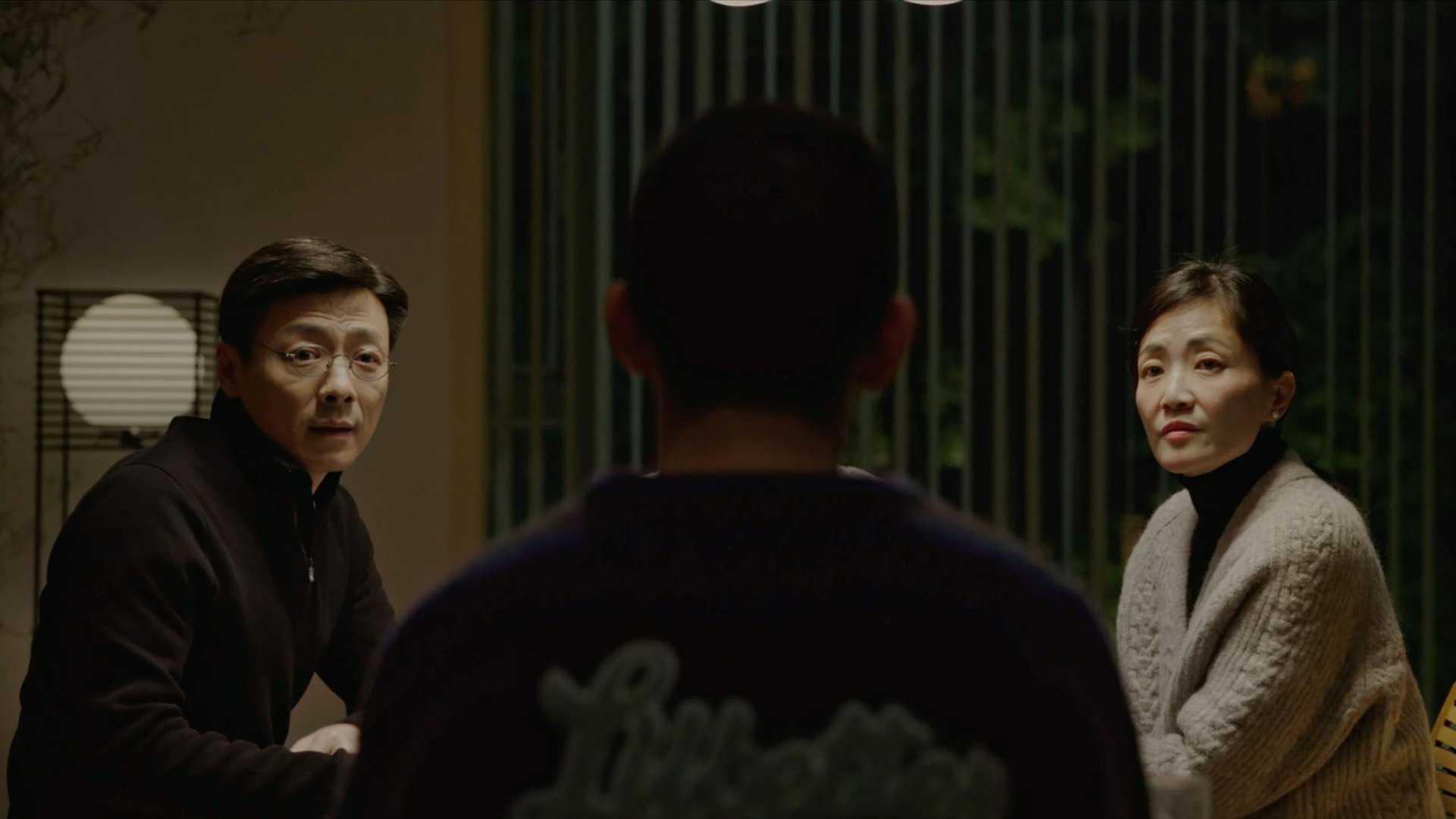
I think the international consideration is interesting. In the film, they also talk about sending their children abroad for higher education, like to Ivy League institutions.
There was a time when studying abroad was really hot and trendy in China. Now, probably less so because many want to stay in China, since the economy is doing so great. But I really wanted to capture a generation gap. There's the father who benefited from a certain system, and he wants his son to do better. But his son has a very different worldview as well.
That's apparent even from the way they dress.
The costumes were carefully designed for each character, but especially for Wei and Shuo. Wei is always wearing something in a completely different style from his father. It's only at the end when he wears a shirt he looks so uncomfortable in, as if he's suffocating.
I was also struck by the sound. Normally, the music should tell you what to think, but here, it just doesn't.
Exactly. In my short films, I never worked with music. But this time I felt bold, and I wanted to make the music a character in the story. I started working with a composer for a long time, even before shooting. It took us a long time to find what actually was the best fit for the film. He sent me a lot of stuff before and during shooting, but it was only after I asked him to make a track for the first cut when I told him, “Okay, I don't want you to tell the audience how to feel, because that's what music tends to do in a lot of films. But what I want is a mood, and the audience can decide how to feel for themselves.” It's loud and clear, but also mysterious.
And then there's the emphasis on both Eastern and Western influences, almost as if it's a globalization story.
One of the things about the new Chinese middle class is that they do get influenced by Western culture – like classical music and fencing – but also sticking to tradition, like calligraphy. The father character too is a product of a Chinese upbringing in a Western educational system.
Finally: you mention that you want your audiences to interpret the ending. Do you have one yourself?
That is something I cannot reveal.
We need to have a drink, then!
Even with a drink! This is something for the audience to interpret for themselves. (laughs)


